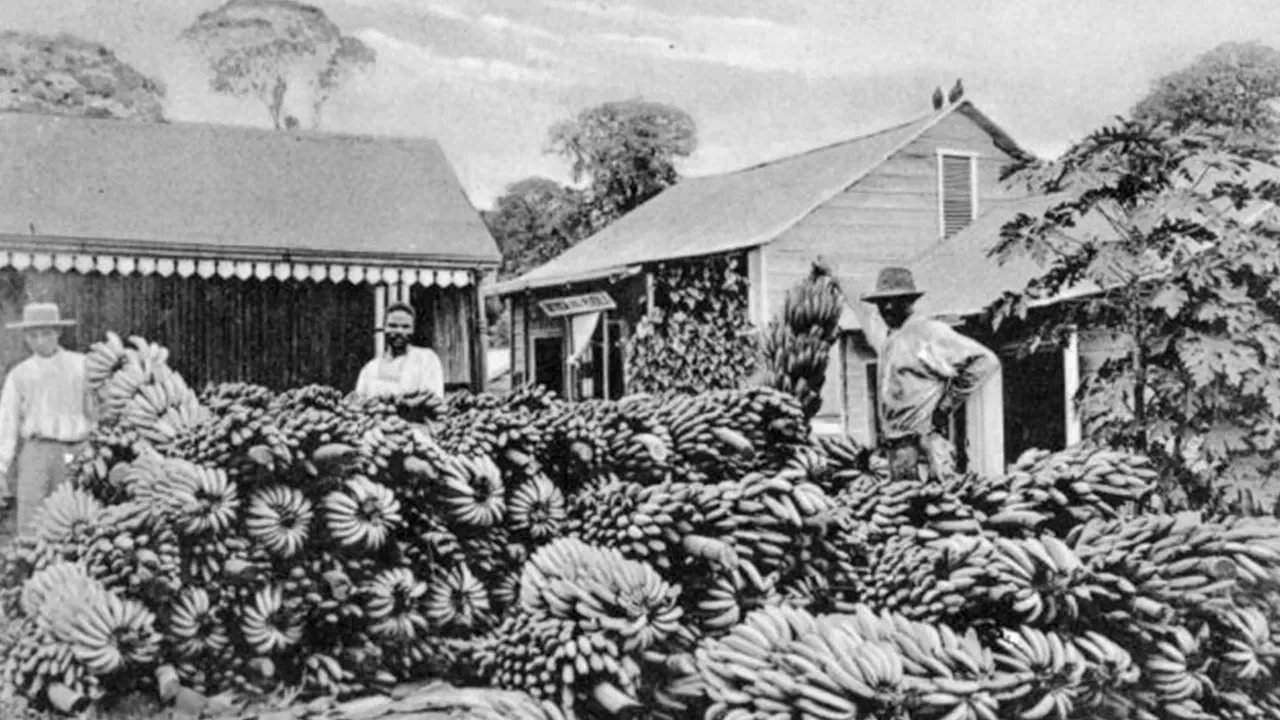
JCC Making A Banana Split
The Banana Wars, 1920
About the banana wars, 1920
The Caribbean basin of the early 20th century-in the time period following the Spanish-American War-was once synonymous with the moniker of "the American Mediterranean". It was known as such for the overwhelming political, economic, and military influence of the United States, which enforced its self-proclaimed right to intervene in the hemisphere under the Roosevelt Corollary. This policy transformed the region into a sphere of influence where American diplomatic pressure and Marine Corps deployments often dictated the fate of sovereign nations. By 1920, this interventionist policy was at its zenith, driven less by pure strategic calculation and more by the powerful interests of American fruit corporations, which had woven a complex web of economic dominance over the "banana republics" of Central America.
While the U.S. government provided the military and diplomatic muscle, the true architects of the conflict were corporate entities such as the United Fruit Company and Standard Fruit. These corporations, through the control of vast plantations, key infrastructure such as railways and ports, and immense political influence in both Washington and local capitals, effectively ruled entire nations. This fostered deep economic and social resentment between the impoverished local labor forces and the powerful foreign conglomerates, so that governments which threatened this corporate hegemony, such as that of President Federico Boyd in Honduras, were often destabilized or overthrown with American support. Labor strikes and local rebellions, meanwhile, became common as populations increasingly resented foreign control over their most valuable national resources. All told, the largest interventions included the ongoing occupations of Nicaragua, Haiti, and the Dominican Republic in which U.S. Marines installed puppet governments, collected customs revenues, and fought running guerrilla wars against nationalist insurgents. Delegates on this committee will take on the roles of the political leaders of Caribbean and Central American nations, military commanders of U.S. Marine expeditions, powerful executives of American fruit corporations, and revolutionary leaders of local insurgent groups, tasked with determining how to navigate this tumultuous world of 1920. Filled with a volatile mix of corporate greed, rising nationalist fervor, and heavy-handed American imperial power, the region is a powder keg. Will local populations ready to fight for their sovereignty clash with systems of governance that exist only at the pleasure of foreign capital, while rival corporations and nations circle, ready to feast on whatever concessions and territories they can secure? The future of the Caribbean balances on a knife's edge. Decisions made here will determine whether the region descends further into a self-reinforcing cycle of exploitation and rebellion or finds a path toward a more stable and sovereign future.
diego balda
coordinating Crisis director
jack groban
chair
everett little
crisis director

